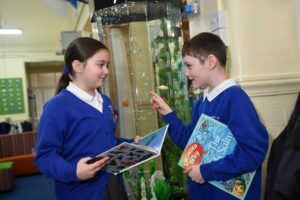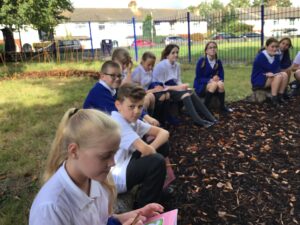Oracy at Mersey Park
At Mersey Park Primary School, we value the importance of oracy for all our children. We see it an essential life skill and something that needs to be explicitly taught, modelled and assessed. Our school is part of the Voice 21 programme. Throughout the school day and across the curriculum, we encourage our pupils to speak clearly and confidently and to articulate their views and opinions. We have established discussion guidelines which help the children to be good listeners and to respect each other’s ideas and opinions. We also use a range of talk tactics to help children to instigate, build, clarify and challenge others during respectful discussions. We teach children to express themselves orally in an appropriate way, matching their spoken language and responses to suit different audiences and for different purpose. Their spoken language skills are further developed in regular P4C sessions.
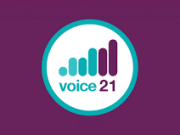
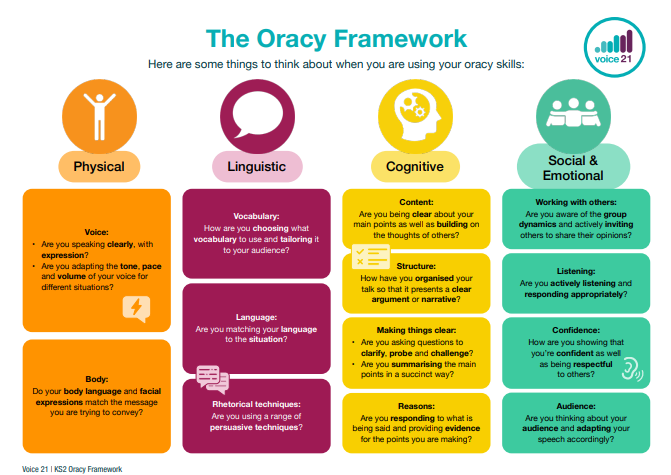
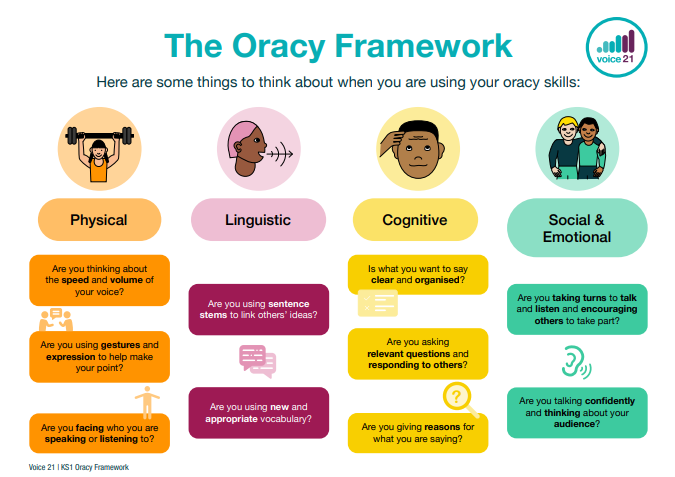
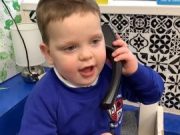
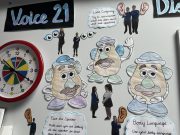
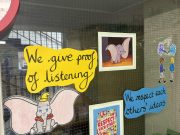
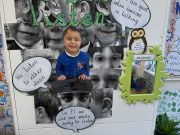
Oracy Policy
Please click the link below to view our oracy policy.
Talk for Writing
In Literacy every year group orally retells a story incorporating actions before writing their own version of the story.
Foundation 1
In Foundation 1 there are many opportunities for the children to practice their speaking and listening skills through the use of nursery rhymes, performance activities and shared tasks. It can be noisy in Foundation 1 sometimes but that is because they are always talking to each other about their learning.
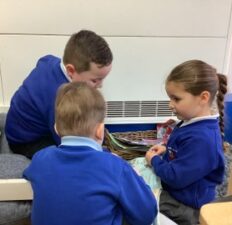
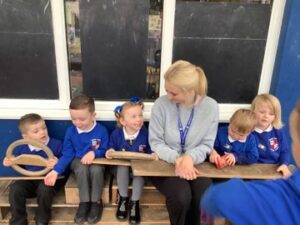
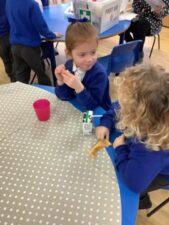
Foundation 2
In Foundation 2 the children are actively encouraged to act out stories they have been told so they can practise using storytelling language and vocabulary. They use carpet time and outdoor areas to hold regular discussions about work and practise their speaking and listening skills together.
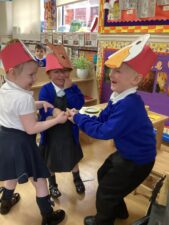
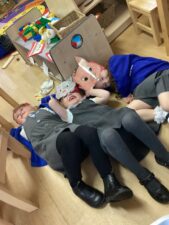
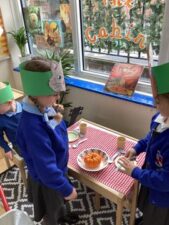
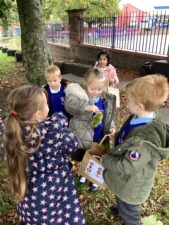
Year 1
In Year 1 the children continue to develop the necessary skills for speaking and listening through a wide range of activities. There are opportunities for the children to consider different ideas, pose questions on different topics and discuss with the class their own views. The children continue to build up their story telling language through role play and retelling the story and are given many opportunities both in the classroom and other areas of the school to discuss their learning.
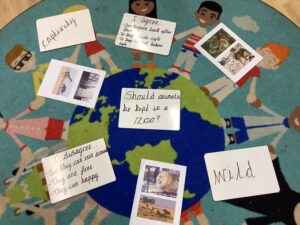
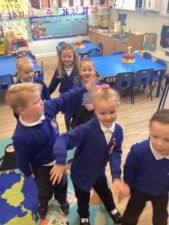
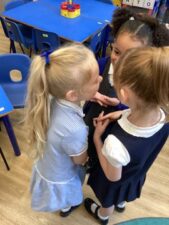
Year 2
In Year 2 the children use think, pair, share as a technique to build their original ideas. This ensures the children are able to think of an idea, then have time to pull their thoughts together before presenting it to the class. They use carpet sessions and teamwork regularly to continue to build up their vocabulary and encourage them to become confident speakers. Across all subjects they are given time to speak together and are actively encouraged to listen to their peers ideas too.
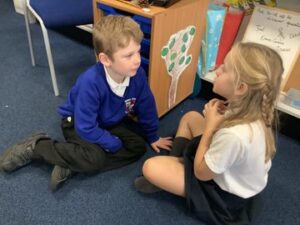
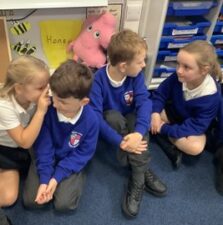
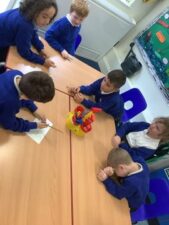
Year 3
In Year 3 the children are encouraged to build on the skills taught in Key Stage 1 by developing a sense of debate. They are able to take turns, bounce ideas around and use language to cultivate a classroom in which every child can share their ideas. The children are able to use these skills across the curriculum to talk about any topic that is significant.
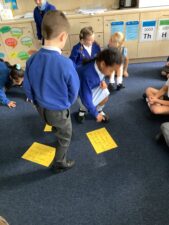
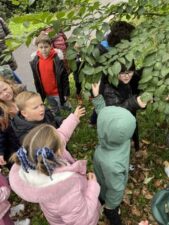
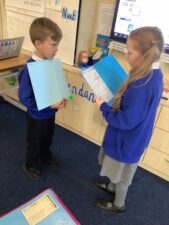
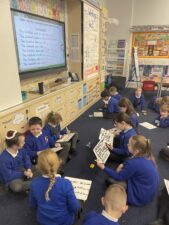
Year 4
In Year 4 the children use their discussion skills to talk about a range of subjects that really matter. They link their own ideas and views to those of others by using a range of debating language and phrases. They area able to hold a persuasive debate without it ending up as an argument. In other subjects the children use these skills to work together on projects and share a wide range of knowledge.
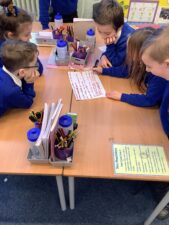
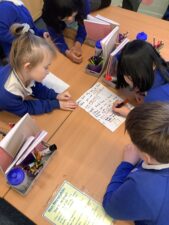
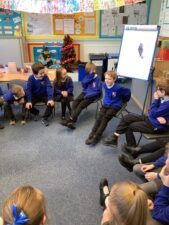
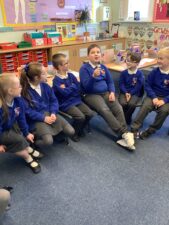
Year 5
In Year 5 the children use the whole range of speaking and listening skills already taught to build on their discussions. They are able to hold detailed debates with views that both support and oppose their friends’ views. They regularly discuss how to project their voice and how to speak for different audiences. They act out the myth of Perseus and Medusa where we gain a better understanding of the emotions the characters feel.
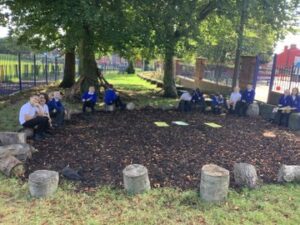
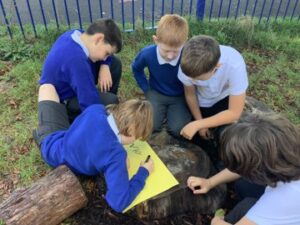
Year 6
In Year 6 the children practise projecting their voice, standing in a confident manner and being able to present work and ideas confidently regardless of the subject or audience. They use language and ideas that are relevant and suitable.
